What Is Kubernetes CI/CD?
Kubernetes is an open source orchestration platform with a rich set of capabilities that let you build, test, and deploy containerized applications. Kubernetes automates many software provisioning processes. When combined with a continuous integration and continuous delivery (CI/CD) process, Kubernetes-driven automation can ease and accelerate software releases.
A Kubernetes CI/CD pipeline can introduce automation into additional areas of concern previously performed manually or by third parties. For example, you can configure Kubernetes to monitor and respond to outages automatically and improve server utilization.
You can create a Kubernetes CI/CD pipeline by integrating Kubernetes with CI/CD tools. For example, you can use Jenkins X or Gitlab for continuous integration, and tools like Ocean CD, GoCD, or ArgoCD for continuous delivery. We’ll cover these and many more tools that can help you level up your DevOps game and start practicing Kubernetes CI/CD.
This is part of a series of articles about CI/CD
In this article, you will learn:
Benefits of Kubernetes for Your CI/CD Pipeline
A CI/CD pipeline aims to quickly and often automatically update applications. Here are several ways in which Kubernetes can improve your CI/CD pipeline:
- Reducing release times—a manual CI/CD process can cause various issues that delay the production timeline. For example, it may lead to code-merge collisions and further extend the timeline when customers need to wait for updates and patches. Kubernetes can help you automate the process.
- Monitoring and responding to outages—power outages and unexpected traffic spikes can occur at any time of the day. You can use Kubernetes to monitor your environment to quickly learn of these issues and remediate to ensure your application continues to run.
- Improving server usage efficiency—applications that are not packed efficiently onto servers can incur overhead in capacity charges. This issue can occur whether the application runs on-premises or in the cloud. Kubernetes can help you maximize server usage efficiency to ensure optimal usage and charges.
- Containerizing code—Kubernetes helps you run applications in containers to ensure the application has all the necessary libraries and resources. You can leverage containerization to make your application portable, easily replicated, and highly scalable.
- Orchestrate your deployment—Kubernetes facilitates an easier deployment process. Kubernetes can help you deploy your applications, monitor the health of containers, and scale to meet changes in demand.
Kubernetes CI Tools
Here are several CI tools you can integrate with Kubernetes:
Jenkins X
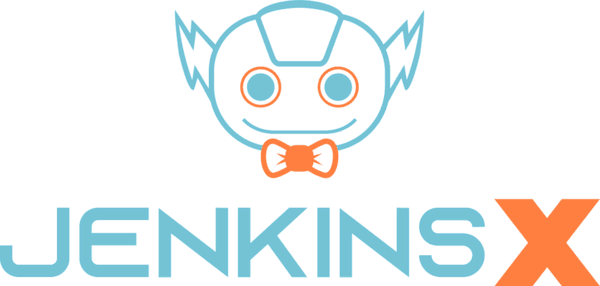
Jenkins is a highly popular open-source CI/CD platform written in Java. It offers several versions and a variety of plugins and features designed to help you build, test, and deploy your project. Enterprises worldwide use Jenkins for continuous integration and automation.
Jenkins X is a new iteration of Jenkins designed to support cloud native applications on Kubernetes. Jenkins-X facilitates quick deployments of new Kubernetes projects through various capabilities, such as Preview Environments, GitOps, and Automated CI/CD.
Learn more in our detailed guide to ci/cd with jenkins
CircleCI
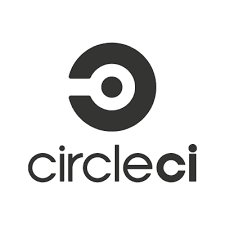
CircleCI is a cloud-based continuous integration and delivery tool that provides an API for automatic Kubernetes deployments. The tool does not require a dedicated server and employs several testing methods to test all code changes made before deployment. For example, CircleCI lets you run unit, functional, and integration tests. However, CircleCI does not provide all functionality needed to establish a CD pipeline.
Travis

Travis is a cloud-based continuous integration tool that can automatically build and test code changes. Once you sign up, Travis lets you link your repository, build, and applications. You can integrate Travis with popular cloud repositories, such as Bitbucket and GitHub.
Travis is hosted in the cloud and does not require a dedicated server. You can use it to test on various machines that run different operating systems. The tool is free for open source projects. Commercial projects can purchase an enterprise plan.
GitLab Community Edition

GitLab is a DevOps platform that lets you develop, operate, and secure your code. GitLab delivers all features in a single application, streamlining the DevOps process. You can use GitLab to build, test, and deploy your code.
GitLab can integrate with Kubernetes, enabling you to monitor Kubernetes clusters and control the deployment of all artifacts. It offers an Auto DevOps feature that creates a CI/CD pipeline based on your unique technology stack. GitLab then deployed your application automatically on a Kubernetes Cluster.
GitHub Actions
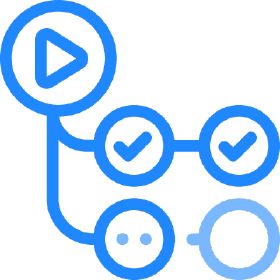
GitHub Actions is a CI/CD platform for automating build, test, and deployment pipelines. It allows you to create workflows to build and test each pull request to your GitHub repository. It also lets you merge pull requests and deploy them to production.
GitHub allows you to run workflows on Windows, macOS, and Linux virtual machines (VMs). Alternatively, GitHub Actions lets you host runners in your cloud infrastructure or data center.
Tekton

Tekton is a Kubernetes-native open source framework you can use to create CI/CD systems. You can deploy and configure Tekton declaratively into existing Kubernetes clusters. This framework can also integrate with your existing CI tools.
The Kubernetes-native architecture of Tekton helps make CI/CD pipelines portable, ensuring they can function across multiple cloud vendors and locations. You can use the framework to standardize and share workflows across teams declaratively.
Azure Pipelines

Azure Pipelines can automatically build, compile, and deploy your code on multiple environments simultaneously. It offers capabilities for both CI and CD and can seamlessly integrate with Azure deployments.
The service supports many programming languages, including Java, Python, Go, Node.js, JavaScript, .Net, XCode, and C++. You can integrate Azure Pipelines with GitHub, Bitbucket, Azure Repos, Subversion, and other version control systems.
Related content: Read our guide to azure ci cd
AWS CodePipeline

AWS CodePipeline is a cloud-based CI/CD service that can model, visualize, and automate all steps needed to release software. It lets you define pipeline stages for retrieving code from source code repositories and build your source code into a publishable artifact.
Learn more in our detailed guide to aws ci cd
You can use CodePipeline to test this artifact. CodePipeline deploys only code that successfully passes all predefined stages. The service lets you add additional requirements, such as manual approvals, to your pipeline as needed.
Kubernetes CD Tools
This group includes tools that enable for continuous delivery with Kubernetes.
Ocean CD

Ocean CD is a Kubernetes-native solution. It focuses on the most difficult part of modern application delivery by automating verification and mission-critical deployment processes. With Ocean CD, developers can push code while DevOps maintain SLOs and governance.
Here are some key features of Ocean CD:
- Complete verification and deployment automation—developers and DevOps can have confidence in deployment reliability because Ocean CD validates and controls deployments, and rolls back when required, so code can smoothly deploy into production.
- Out-of-the box delivery approaches—overheads related to release management are reduced with Ocean CD’s out-of-the-box progressive delivery approaches. These strategies make it simple for users to execute deployments. Developers now have visibility across every delivery stage, and thus the entire CD process.
- Container-based infrastructure—when employing Ocean, users leverage container-driven infrastructure that can auto-scale to adhere to application requirements during the deployment process, optimizing cloud infrastructure costs and operations.
GoCD

GoCD is an open source tool which runs as a server. This build tool allows you to build CI/CD development pipelines. You can use it when working with complex release workflows.
Here are some key features of GoCD:
- Builds a full continuous delivery (CD) pipeline, enabling secure and automated deployment to production.
- Uses an infrastructure-as-code (IaC) approach, allowing you to define each pipeline using declarative configuration based on YAML or JSON. This lets you manage and reuse pipelines across multiple software projects.
- Runs pipelines both in parallel and sequentially, with configurable dependencies.
- Provides a view of an entire workflow from development to production; manages a feature from the first commit to the final deployment via value stream mapping.
- Uses a plugin architecture. GoCD is flexible, offering an ecosystem of plugins and letting you build your own.
Spinnaker
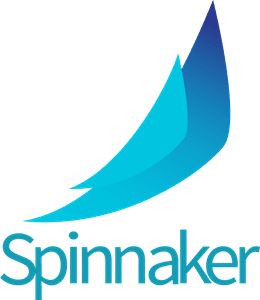
Spinnaker is an open source tool first developed by Netflix. This continuous deployment tool supports Kubernetes with an official provider that integrates with Spinnaker. After it is configured, Spinnaker reads the whole cluster and presents all the available applications.
Using Spinnaker, you can create deployment pipelines initiated by a new Docker image or a CI tool. After you configure Kubernetes, you can easily deploy a new service in the cluster.
Argo CD

Argo CD is an open source, declarative, GitOps continuous delivery tool for Kubernetes. It utilizes Git repositories to retain the state of the Kubernetes application and keep track of applications – a process known as GitOps. It can resync clusters to the desired state, as per the Git configuration.
This process lets you retain multiple desired states of a Kubernetes application using tags or branches. It also permits you to pin manifest versions via a Git commit. This approach offers a flexible environment for overseeing Kubernetes configuration throughout the development process.
Argo Rollouts is a set of Kubernetes controllers and CRDs that provide advanced progressive deployment features such as blue/green deployment, canary deployment, and experiments.
Argo Rollouts can integrate with input controllers and service meshes, using traffic shaping features to incrementally switch traffic to new versions during updates. Rollouts can also query and interpret metrics from different providers to validate KPIs that can ensure deployments are working properly. Based on these KPIs, it can automatically update or roll back software versions.
FluxCD

Flux automatically makes sure that the state of a cluster equals the configuration in Git. It initiates deployments in Kubernetes, integrating directly with cluster controllers. Here are some key features of Flux:
- Oversees all applicable image repositories, identifies new images, and initiates deployment.
- Updates the desired running configuration according to the deployments (and based on your policy configuration).
- Does not require CI access to the cluster – every change is transactional and atomic and Git retains your audit log.
- Completely code-centric, and applied to existing infrastructure without relying on other tools.
Harness
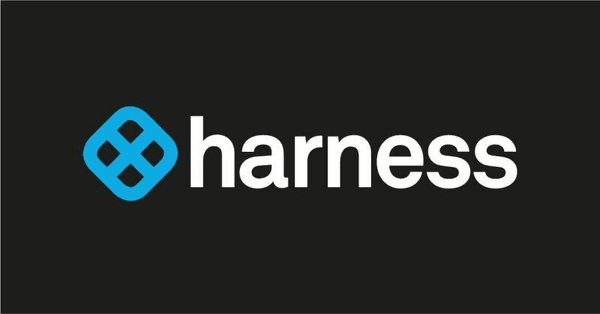
Harness is a software delivery platform. Key features include:
- Lets engineers deploy into production and on-demand via a UI pipeline builder.
- Has GitOps abilities, so teams may reference a single or multiple Git branches and repositories.
- Supports traditional and cloud native workloads involving Helm, containers, Kubernetes, Serverless, ECS, and web server stacks such as WebSphere or WebLogic.
- Triggers pipelines based on Git events such as ‘on commit’ and ‘new artifact version’
Harness provides out of the box support for:
- Third-party secret management tools including CyberArk and HashiCorp Vault
- Bug tracking and ticketing tools like ServiceNow and JIRA
- Monitoring tools like DataDog, New Relic, and Prometheus
Flagger
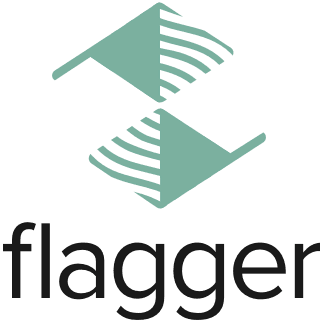
Flagger is a progressive delivery tool. This tool automates the release activity for applications that run on Kubernetes. It decreases the risk of introducing a new software version in production by slowly shifting traffic to the new version, while running conformance tests and measuring metrics.
Flagger uses various deployment approaches (A/B testing, Canary releases, and blue/green monitoring) via common service mesh platforms (Istio, App Mesh, Open Service Mesh, Linkerd) or an ingress controller (Gloo, Contour, Traefik, Skipper) for routing traffic.
For release monitoring, Flagger can query Datadog, CloudWatch, Prometheus, New Relic, InfluxDB, Stackdriver, Dynatrace. It integrates with MS Teams, Discord, Google Chat, Slack, and Rocket for alerting.
